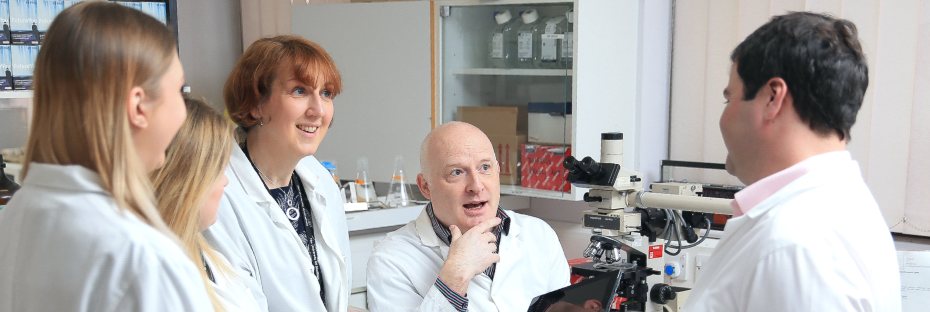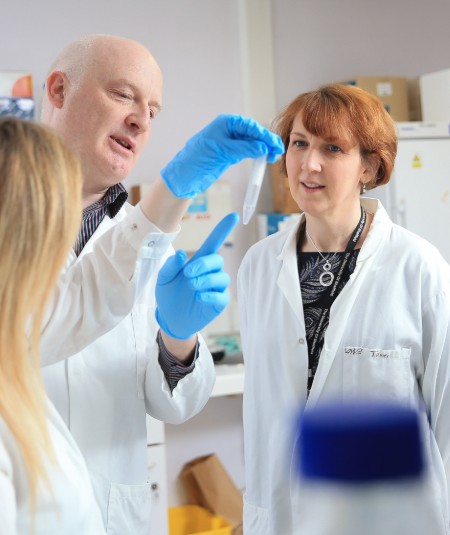LactoLycopene, lycopene and fertility

Author Gill Shaffer Last updated 11th October 2019
- Family Health
- Ingredients & Nutrition
LactoLycopene, lycopene and fertility
To conceive a child, a man depends on having a sufficient number of healthy sperm. Unfortunately male fertility issues are on the rise.
In this article we look at the potential benefits of a compound called lycopene for sperm quality, and explain how you can get enough to make a difference.
- What is the main cause of male infertility?
- What is oxidative stress?
- What is lycopene?
- How can lycopene make a difference to male fertility?
- How does LactoLycopene differ from lycopene?
- Summary
What is the main cause of male infertility?
According to the NHS, issues with sperm are the major cause of fertility problems for men.
Sperm are male reproductive cells that contain half of the genetic information necessary to create a new life. Following sex, a sperm will fertilise a female reproductive cell (ovum) which will then develop into a foetus.
Having a good number of healthy sperm will increase the chances that a man can conceive a child. There are three major factors that define whether a sperm is healthy or not:
- Morphology - whether the sperm has the proper shape
- Motility - the ability of the sperm to move around. ‘Progressive motility’ means that it is able to ‘swim’ using its tail
- Count and concentration - the total number of sperm in an ejaculation and the amount in each millilitre of semen
What is oxidative stress?
Oxidative stress is caused by free radicals. These are oxygen molecules with unpaired electrons that will attempt to ‘pair up’ with other molecules, a process that changes other substances within the body and causes damage to cells.
It is natural to have free radicals in the body, as they are produced during normal biological functions. However, free radicals are also responsible for a whole range of issues including ageing, heart disease and damage to sperm.
What is lycopene?
In recent years, researchers have become interested in the potential benefits of lycopene for male fertility.
Found in fruits and vegetables, lycopene is a bright red carotene and carotenoid pigment that gives tomatoes their red colour. Tomato products are the most common dietary source of lycopene, accounting for more than 80% of intake, though it is also found in everything from red peppers to asparagus.
It is also a powerful antioxidant that could help to offset the negative effects of oxidative stress. Antioxidants will ‘pair up’ with free radicals, which neutralises them and prevents them from doing damage to cells.
How can lycopene make a difference to male fertility?
 Free radicals are highly reactive oxygen molecules that damage the function of healthy cells, including sperm cells. They are produced by the body’s own biological processes but are also created in response to environmental stimuli such as pollution.
Free radicals are highly reactive oxygen molecules that damage the function of healthy cells, including sperm cells. They are produced by the body’s own biological processes but are also created in response to environmental stimuli such as pollution.
Lycopene is known to have antioxidant properties, meaning that it bonds with free radicals - neutralizing them.
Male infertility is most often caused by poor sperm motility, quantity, and genetic quality. Men with a good percentage of high-quality, undamaged sperm are more likely to impregnate a partner. Any reduction in the number of these high-quality sperm - which can occur as a result of free radical damage that affects motility, for example, will significantly impact a man’s ability to reproduce.

Free radicals must be neutralised by antioxidants in the semen if sperm are to function normally. Damage from free radicals can affect the fluidity of cell membranes, affecting sperm motility as well as morphology. If the damage is severe enough, theoretically, it can even cause cell death, reducing the sperm count.
As a powerful antioxidant, lycopene can reduce this free radical damage and have a beneficial effect on the chances for conception.
Since sperm production takes three months, elevated levels of lycopene in the blood must be maintained over time for a beneficial effect to occur.
With male infertility on the rise, and oxidative stress a known cause of DNA damage to sperm, there has been much recent interest in the effects of lycopene. Multiple human and in vitro studies have been performed that show the potential benefits.
For example, a review of lycopene studies by fertility specialists at the prestigious Cleveland Clinic in Ohio, USA, found that lycopene can boost sperm quality by up to 70 per cent.1 However, this is just one of a number of studies conducted in recent years.

The review stated: 'the only parameters that are conclusively improved with lycopene supplementation are: a decrease in lipid peroxidation and DNA damage, an increase in antioxidants and therefore general immunity, and improved sperm count and viability. These improvements are vital in tackling the problem of oxidative stress, which affects sperm viability, motility and DNA, and therefore causes infertility. Although the results are generally promising, it is evident that more detailed and extensive research has to be done on the efficacy of lycopene, a potent singlet oxygen quencher, in the treatment of idiopathic male factor infertility.'
Following this, a team of researchers at the University of Sheffield led by fertility expert Professor Allan Pacey sought to establish the effectiveness of lycopene in humans. Sperm among healthy populations, as previous studies had monitored the effect on people with fertility issues. This study followed on from recent data from animals given lycopene that showed an improvement in sperm quality or a reduction in sperm damage. This study used a bioavailable form of lycopene, LactoLycopene, and found that LactoLycopene supplementation significantly increases the percentage of fast progressive sperm as well as normal and healthy sperm forms. These two measures partly influence sperm quality, and sperm quality is directly linked to chances of conception.2

How does LactoLycopene differ from lycopene?
As found in raw fruits and vegetables, lycopene is not 'bioavailable', i.e. it is difficult for the body to absorb.

Processing raw tomatoes to create, for example, tomato puree actually increases the amount of bioavailable lycopene. Cooking and the addition of fat or oil improves bioavailability.
LactoLycopene, which was used in the University of Sheffield fertility study, combines lycopene with whey protein to allow more of the active ingredient to be absorbed into the bloodstream through the intestine. A University of Cambridge study showed that lycopene levels in the blood rose between 60% and 100% within two months for people taking LactoLycopene, while another study at Boston’s Brigham & Women’s Hospital, run by Harvard Medical School, found that it increased average blood levels of lycopene at both six and 12 months.3,4
Summary
Male fertility is affected by a range of factors, among which is oxidative stress which causes damage to sperm cells. The 'free radicals' that cause oxidative stress can be neutralised by antioxidants.
As a powerful antioxidant, studies have shown that lycopene could have significant benefits for male fertility. Found in fruits and vegetables, especially the skin of tomatoes, it is difficult to get enough from food alone. Processed tomato products are a better source of lycopene than raw fruit, but easy-to-absorb versions such as LactoLycopene have now been used in studies on humans to establish the effectiveness of lycopene for male fertility issues.
References
- Durairajanayagam D. Agarwal A. Ong C. Prashast P. Lycopene and male infertility. Asian J Androl. 2014 May-Jun; 16(3): 420–425. www.ncbi.nlm.nih.gov/pmc/articles/PMC4023371/
- Williams, E.A., Parker, M., Robinson, A. et al. Eur J Nutr (2019). https://doi.org/10.1007/s00394-019-02091-5
- Jouni Karppi, Jari A. Laukkanen, Juhani Sivenius, Kimmo Ronkainen, Sudhir Kurl. Serum lycopene decreases the risk of stroke in men. Neurology Oct 2012, 79 (15) 1540-1547; DOI: 10.1212/WNL.0b013e31826e26a6 https://n.neurology.org/content/79/15/1540
- https://www.abstractsonline.com/plan/ViewAbstract.aspx?mID=2974&sKey=aca3e8fa-3364-49f1-895d-2d9172c01fbf&cKey=db3629d8-34d6-4c72-86a3-112bd910595d&mKey=%7B14145D5B-F96B-4354-8237-8F0937744BA4%7D
